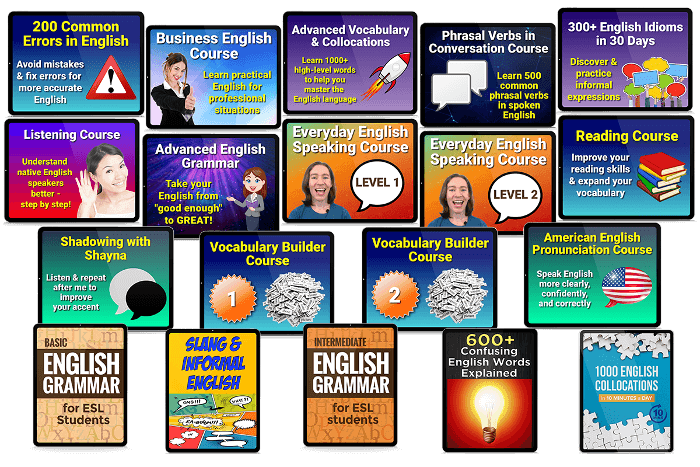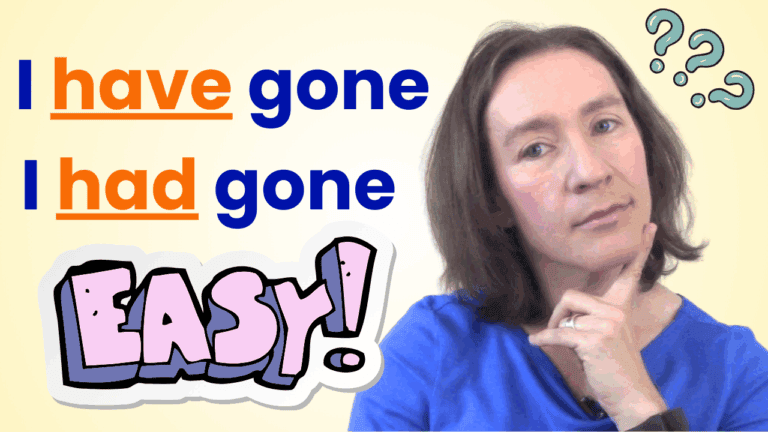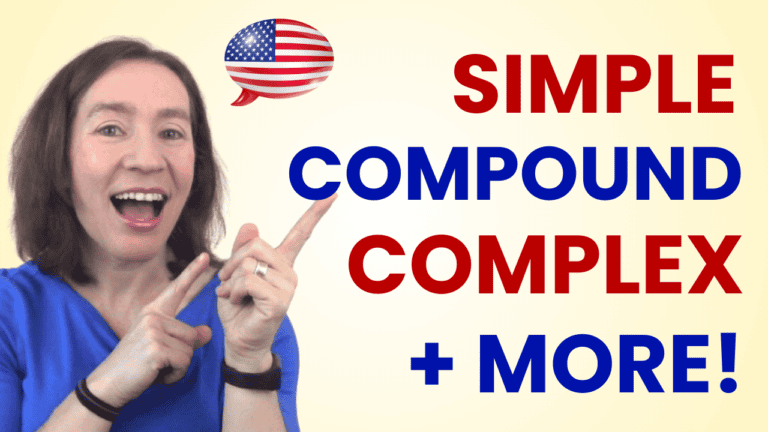
Learn more about Espresso English courses
Hi students, it’s Shayna, your teacher from espressoenglish.net. Today, I’m going to answer a very good question from a student who asked about the difference between while and when, because they seem to mean the same thing. We use while and when when two things are happening at the same time.
Before I get started, I hope you’re watching me live today. If you’re here watching this lesson, then please like it so that I know you are watching. All right. This is a really good question about while and when and I actually had to do some research and think about it a little bit in order to give you a clear answer.
Two simultaneous continuous actions = while
Let me explain, we use while and when when two things are happening at the same time. Now, when we have two continuous actions happening at the same, then we usually use while. Right now, I’m recording a video while my husband is working. We have two continuous action, I’m recording and my husband is working. I’m recording a video while my husband is working.
Or here’s an example in the past, last night, I was watching TV while my father was sleeping. Again, we have two continuous actions. I was watching TV and my father was sleeping. I was watching TV while my father was sleeping. With two continuous actions, we usually use while.
Two single actions at the same time / one immediately after another = when
Now, when we have two single actions that happen at the same time or one happens right after another one, then we tend to use when. For example, I picked up the phone when it rang. First, the phone rang, and then immediately I picked up the phone.
You can see that we have two verbs there in the simple past, not continuous. The phone rang and I picked up. I picked up the phone when it rang. We have two single actions that happened very close together, almost at the same time and so we use when.
Another good example would be when I get home, I take off my shoes. That’s also two single actions. I get home and I take off my shoes. When I get home, I take off my shoes. Or you could say it the other way, I take off my shoes when I get home.
Both while and when are used when two things happen at the same time, but we tend to use while with two continuous actions and when with two single actions.
Ages = when
We also use when with ages. For example, I got my driver’s license when I was 16 years old. We wouldn’t say while I was 16 years old. Or, I went to Brazil for the first time when I was 19. When you have an age, then use when.
I could also have a continuous verb. For example, when I was 25, I was working in New York city. There I have a continuous action but because I’m talking about a specific time period, when I was 25, I use when and not while. I was working in New York city when I was 25 years old.
One single action, one continuous action
Now, things start to get a little more complicated when you have two actions but one is a single action and one is continuous. That would be an example like this, “He called while or when I was sleeping.” Now, we have one continuous action and we have one single action (he called). Well, in this case, you can actually use either one. You can say he called while I sleeping or you can say he called when I was sleeping. They’re both correct. All right.
Now, we usually while or when before a continuous action. But if I change the sentence around and the word comes before the single action, then I use when and not while.
If I say “I was sleeping when he called,” then I have to use when because it comes before a single action. But if the word comes before the continuous actions and we have a one time and a continuous, then I can use either one, he called while I was sleeping or he called when I was sleeping.
Another good example of this would be if you’re driving home from work and you get into an accident. You could say “I got into an accident (that’s the single action) while I was driving home or when I was driving home.” Both are correct.
But if we change the sentence around, then we would say “I was driving home from work when I got into an accident,” because when in this case comes before the single action.
I would love to see you try these words out by leaving a comment using either while or when or both. Leave a comment and I will let you know if it’s correct.
Which course to take?
If you’ve been watching this video and you love my lessons, you might be thinking, “Well, I want to take a course with Shayna,” but I have actually a lot of courses and you might be wondering which one to take or which one to start with.
Well, the good news is that if you actually want to get all of my courses, that’s everything from business English to speaking, vocabulary and all of my eBooks on confusing words and collocations and slang, that there’s actually a pretty big discount.
You can get a 50% discount if you buy what I call the Espresso English Academy which is all of the Espresso English eBooks and courses.
If you’re interested in that, please check out the link in this video. I hope you’ve learned a little bit more today about when to use while and when to use when. Thank you so much for your question. Thanks for watching and I will see you next time. Bye-bye.
- Learn more confusing words:










